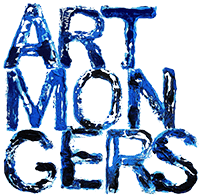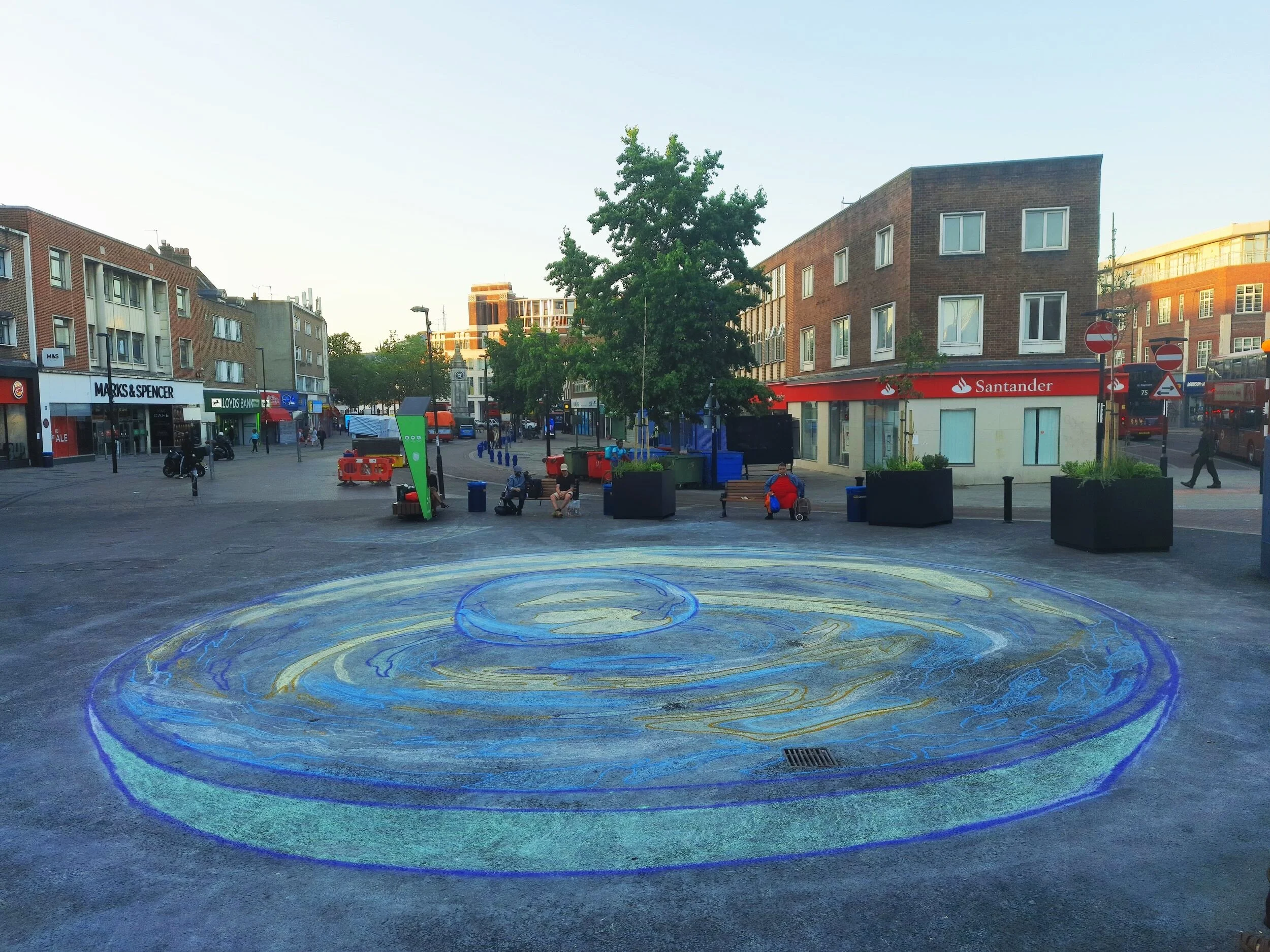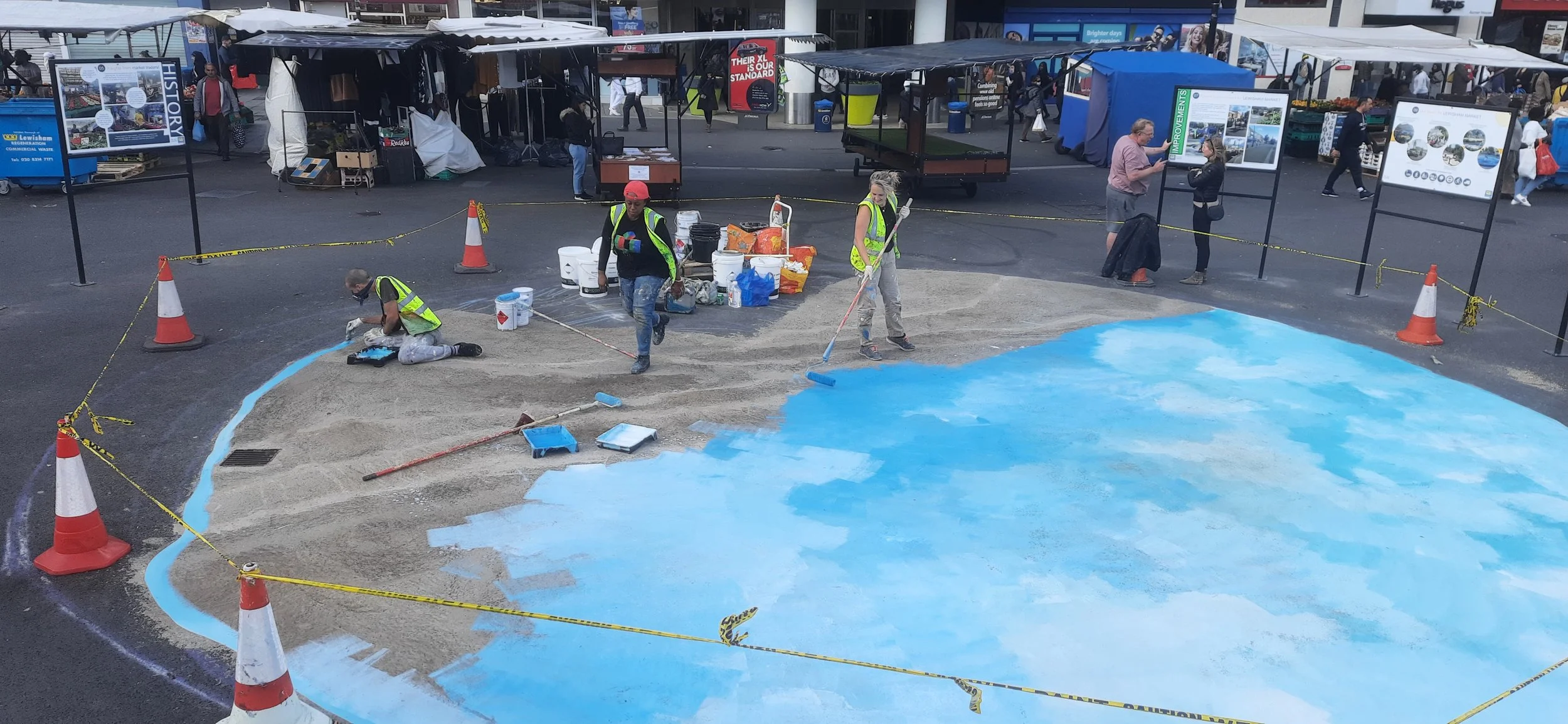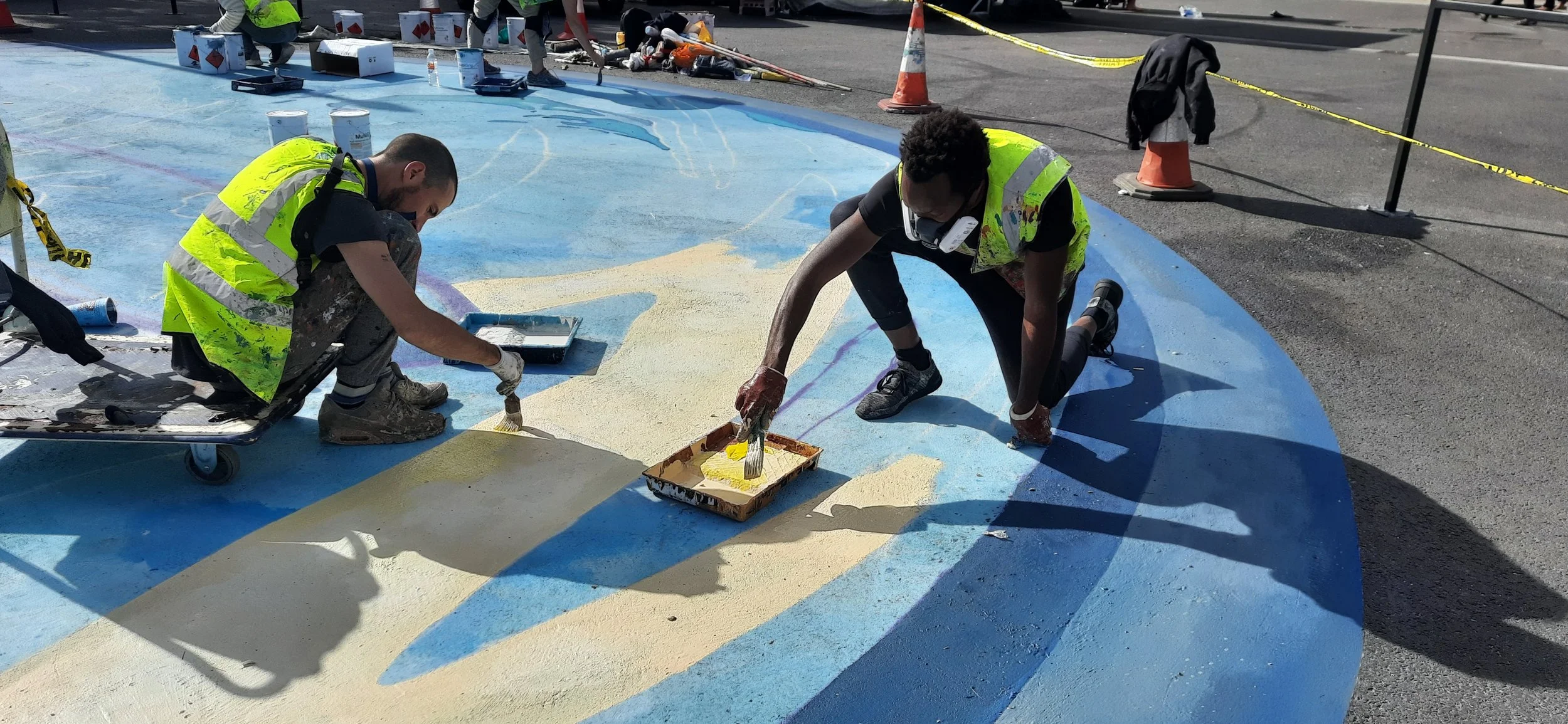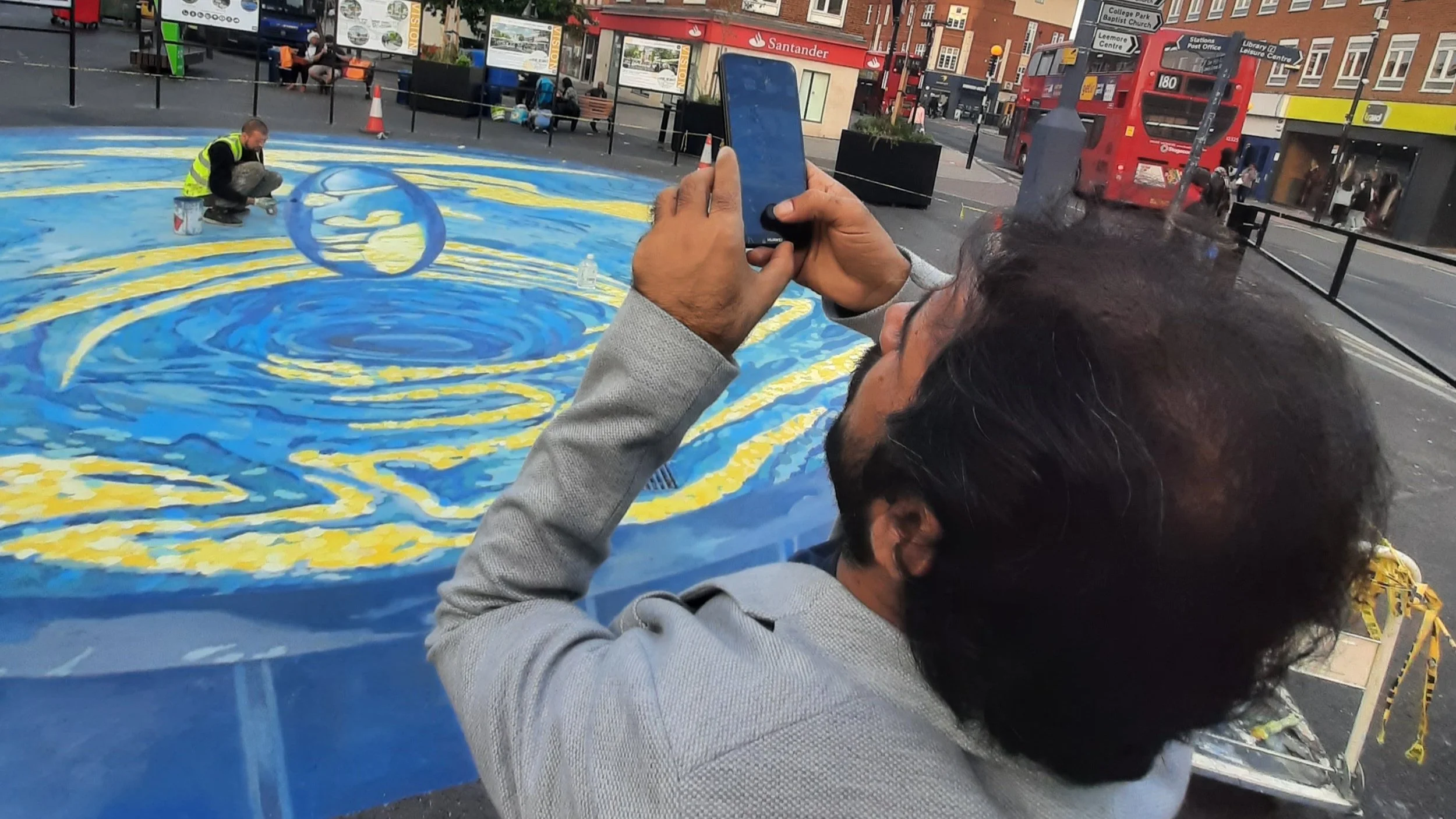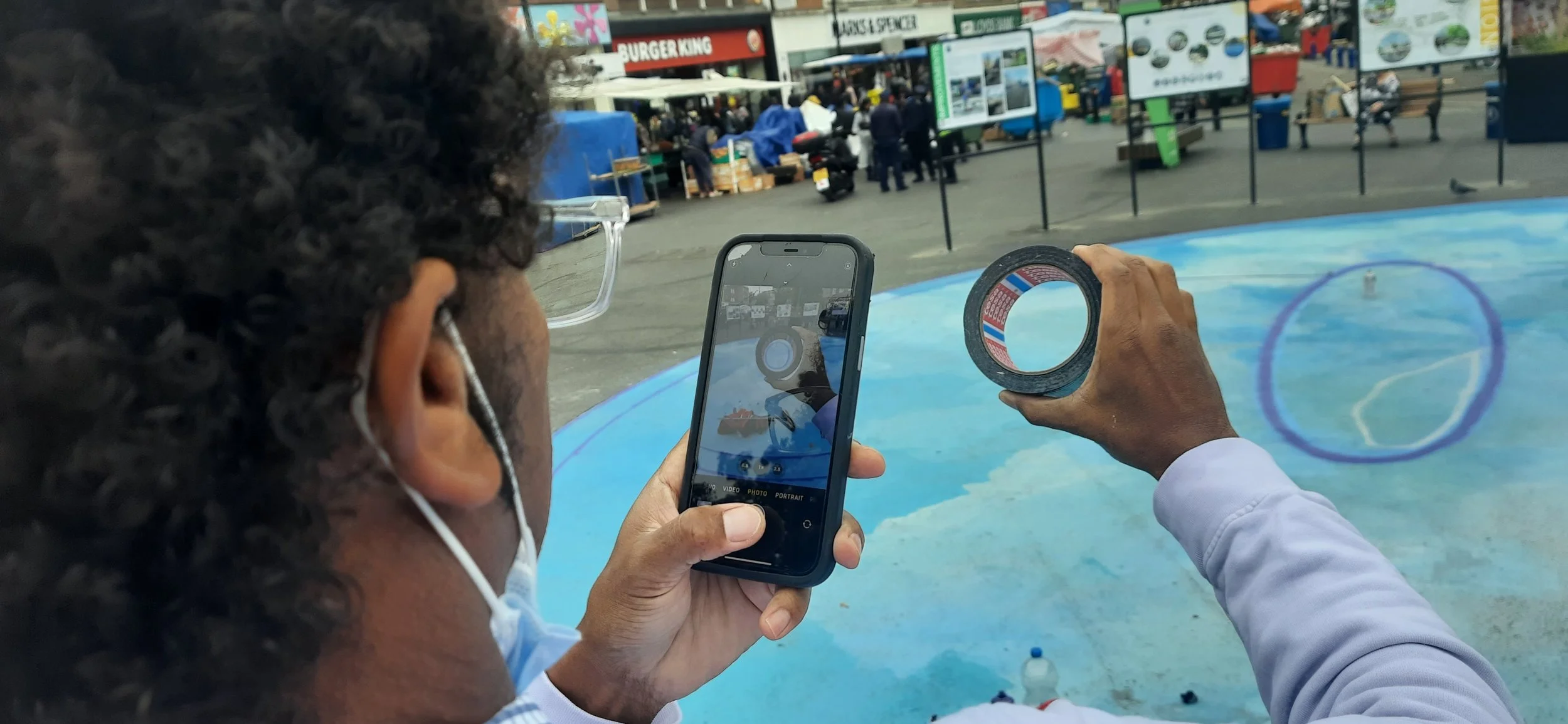The Water Drop Stage
We’ve painted walls, barns and tunnels — but we’d never attempted a floor mural before. For our first go, we wanted to involve as many people as possible, so we sketched three large-scale starter ideas on the floor in chalk and asked passing residents to share their opinions. We needed to get a feel for the right shape for the space and see where these serendipitous conversations could lead us.
The project began in June 2021. After many conversations and much trial and error, we realised that a circular form would work best, as it could act as a focal point for the busy market’s hustle and bustle. We loved the idea that this shape could become a place of performance — even a stage. The streets surrounding the market are full of grey, nondescript buildings, but the market itself is full of life, colour, freshness and movement.
In the end, we decided to paint a 3D water fountain, with a central drop of water catching the light as it ripples across the surface. What does it mean? Well, that’s up to you…
Before committing it to paint, we tested the idea with chalks. The reaction from locals was very positive — perhaps it was the contrast of the fluid shapes and colours against the backdrop of harsh, uniform buildings that did the trick.
The 3D effect took a while to master, as the distortion of the water drop is quite extreme. Images like this only make sense from the correct angle — this is called anamorphosis.
The process of painting straight on the tarmac was interesting. We first used a ‘void filler’, a mix of resin and cement. Getting this layer right was key, as it separated the artwork from the tarmac and gave us a flat canvas on the floor to work with.
Next, we used an anti-slip paint. The final stage was protecting our artwork with a specialist varnish. As you can see in the image above, free-standing panels have been added to the space by the architects. These were only meant to be there for a couple of weeks, but they frame the piece so well we’ve asked for them to become permanent.
In the future, we hope the space could become an exhibition site for local artists.
The beauty of anamorphic images is the multiple ways in which they can be interpreted. From one angle people see a drop of water, but from another perspective it could just as easily be planet earth, floating through a galaxy of blue.
